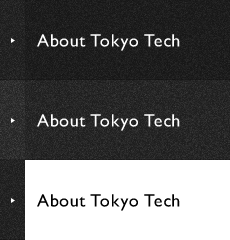Introduction
The mission of Tokyo Institute of Technology (the “Institute”) is to contribute towards the progress of society and humankind through research and education by creating and passing on knowledge, and fostering individuals capable of becoming pillars of the next generation. We place value on evaluation as an important process in achieving this mission.
Through the process of evaluation, the Institute will promote mutual understanding and share awareness among internal and external stakeholders, namely our students, faculty, staff, alumni, and the general public, to co-create and share the same perspective and goals in order to jointly open new horizons.
It is obvious that no absolute, all-encompassing evaluation exists. However, by building and maintaining healthy and co-creative relationships among stakeholders, we will be able to take evaluation to the next level, in harmony with societal changes, together with its members.
The Institute evaluation policy is herein defined based on the recognition of the crucial importance for all stakeholders to share the basic ideas and concepts involving evaluation activities.
The objective of evaluation is to appraise the Institute’s current education and research activities, and, in the process of developing the unique characteristics and identity of our Institute, to facilitate continuous progress towards ever-higher standards, as dictated by the mandates of our mission.
The Institute will take initiative and be proactive in engaging in a range of internal and external evaluations, examining the results on which future reform strategies will be based and formulated. Our efforts will extend to the practice of constant optimization of the evaluation system itself to ensure and enhance quality education and research, as well as to identify the elements of global competitiveness we possess and to discover potential strengths. In doing so, evaluation at the Institute will be conducted in a way that provides each organizational unit and employee with an opportunity to improve their performance, and further promote cross-boundary collaboration leading to advancement of the Institute as a whole.
@Evaluation results, along with related information, will be disseminated and shared with internal and external stakeholders, leading to a co-creative relationship essential to the achievement of our mission.
Appreciation for individuality and diversity
To achieve our goals, it is essential to have an evaluation scheme designed with a multifaceted approach reflecting the importance of creativity and motivation possessed by each of the units and each member of the faculty and staff. Thus, we will introduce criteria capable of assessing the progress of challenging initiatives or projects that require an extended period of time to produce results. Every organizational unit has goals and values of its own, while sharing the common goals of the Institute. Consequently, diverse perspectives need to be taken into account when developing evaluation models.
Evaluation based on mutual trust
The Institute has confidence in the capabilities of its personnel. We will therefore evaluate with emphasis on the positive aspects, rather than search for the negatives, of individual units and personnel. We will conduct our evaluation based on mutual trust between the evaluators and the evaluated, well aware of the negative consequences of unproductive bargaining and strategic manipulation.
Objective, multifaceted approach
The Institute will base the evaluation program on self-inspection and assessment by the individual units and members of the faculty and staff. To ensure objectivity and validity of the findings, we will adopt various perspectives obtained from evaluation involving external organizations, third parties, and students.
Evidence-based evaluation
The Institute seeks transparency and impartiality by basing evaluations on evidence and data, laying bare the evaluation process as well as the results. While emphasizing the function of education and research with quantitative and empirical methods, the Institute will also actively introduce qualitative evaluation methods
Constant improvement of the evaluation system
In order to improve the relevance and efficiency of evaluations, the Institute will constantly engage in meta-evaluation – verification and review of the evaluation framework itself and its processes. We will thus pursue a flexible system capable of facilitating appropriate responses to a wide range of evaluation objectives.
. Any information published on this site will be valid in relation to Science Tokyo.


